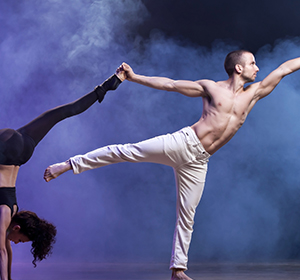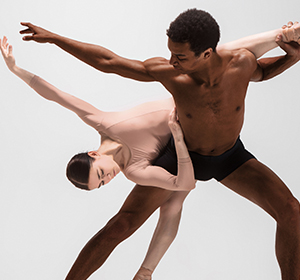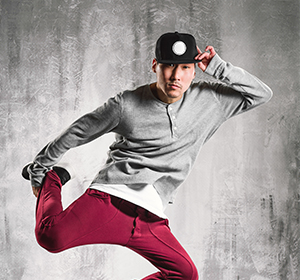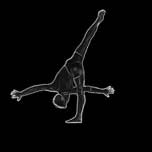2018 Q&A with KW
Kenneth recently sat down with a few of the dancers with KWDP for a Q&A session. Here’s the result.
Q: What is the reason you started KWDP?
A: I was looking for an opportunity to work on a more regular basis with
some of the people I had been working with on a few freelance projects.
There seemed to be a desire from early audiences to see more of what we
were doing so we took the plunge.
Q: Which is KWDP longest performed piece?
A: Do you mean the oldest dance in the repertoire? That would be “All
that Glitters”. The dancers and the audience both seem to enjoy that one
so it stays in the repertoire.
Q: What are the goals KWDP has for future seasons and integration into the dance community and the communities surrounding?
A: We’re always hoping to get back on the road but we want to serve our
community first. We’re looking to do more repertory and master classes
around town. By around town we mean the greater LA area including Orange
County and the Inland Empire. We want to go back and revisit The Ballet
Project. It was a festival dedicated to new ballet choreography. All of
this takes money and time. We, of course, have the long-term goals of
building the rep using masterworks but we just needed to build our fan
base and internal repertoire first.
Q: How many tights does KWDP go through in a season?
A: Not as many as you would think. We have a lot of dances that don’t use traditional pink tights.
Q: What made you decide to start a company?
A: We had our first show on the road and we received a standing ovation.
The next thought was to do something in LA. We sold out each of our
shows. From there it became, “Well I guess we better start a company.”
Q: Where do you teach?
A: I currently teach at The Wooden Floor, it’s an after-school program
for at-risk youth in Santa Ana. I also teach Ballet and Dance
Appreciation at CSU Dominguez Hills. On top of that, I teach adult
ballet at Peninsula School of Performing Arts and San Pedro City Ballet.
Q: What are your favorite classes to teach?
A: I enjoy working with lots of different types of groups. I especially
like working with college students that have negative connotations about
ballet. The kind of students that have invariably had a bad experience
with ballet or had training that was cursory at best. Finding ways for
them to enjoy this form and want to know about it is something I hope to
do for many of my students. I also like teaching partnering and working
with young people in general.
Q: What’s the biggest class you’ve ever taught?
A: I once taught a class that was about 75 students. It was an outreach
class given through Oakland Ballet Company. They were working with
another arts organization to teach dance to at-risk kids. It was a
challenge but we did it and the kids had a great time.
Q: Which ballet was your favorite to perform? Will you ever recreate it through your choreographic kaleidoscope?
A: I enjoyed doing modern masterworks. I never had a great time doing
the classics. I was always in the back. I enjoy the way some
choreographers have redone work like Giselle, Swan Lake, and even Romeo
and Juliet. Will we do the same? Who knows? Nothing is planned because
the scope of doing those works in any capacity tends to be rather large.
Q: What was the inspiration for Soft Ambient Pulse?
A: It’s the second collaboration I did with my friend Kena Rohi Custage.
She was a professional DJ after she was a professional ballerina. The
movement I feel is vintage KWDP, we take the ideals of ballet (line,
vocabulary) and tweak them. We take the centuries-old form and show that
it can still be relevant to the needs of a modern audience. The dance
is inspired by high fashion, the melding of the styles of music in the
dance, and our vision of Contemporary Ballet.
Q: How do you choose costumes?
A: I work with the costume designers and explain any concepts I may
have. I also share the music and movement we have up to that point if we
have any.
Q: What’s a rehearsal day like at KWDP?
A: We start will a shortened company class. Not every company does that.
It takes time out of the day we could use for setting choreography but
I’ve always felt it was important to get the dancers warm and keep them
in shape to do the work. After that we spend time learning the
repertoire we’ll be performing or we’ll get to work creating material
for any new work we’re doing
Q: In a day, how long are KWDP rehearsals typically?
A: We have a pretty full rehearsal day usually. Company class followed by at least 3-4 hours of rehearsal.
Q: Who are some of your favorite ballet choreographers?
A: I appreciate the classics but to see live dance I generally go seek
out modern choreographers like Mats Ek, Alonzo King, Jiri Kylian and
others. I’ve been enthralled with Matthew Bourne lately. He’s telling
stories better than most ballet companies.
Q: What are some of your inspirations?
A: I’m inspired by the work of other artists and choreographers.
Sometimes I’ll just look at another choreographer’s work and think, “I
wish I could create work like that.” But I have my own voice that is
trying to push ballet forward to the current century. I think cinema
inspires my work more than other art forms (except for music). The
choreography of light and cinematography and even stunt choreography,
when done well, informs me. It’s hard to dance for me, sometimes. I
don’t always choreograph linearly. I approach the work the way that film
gets made sometimes. I’ll work on different sections they way that a
director works on scenes. It’s very confusing for newbies in the
company.
Q: What’s happening next season’s performances?
A: We’re hoping to continue our open company class series. We’re also
doing our first every story ballet, “Carmen”. There are other things we
want to do, but it all depends on time and finances.
Q: How do you choose your dancers?
A: At the beginning of the company it was either people I was already
working with or recommendations from dancers in the company. Once
dancers started reaching out to us unsolicited we needed to begin asking
people to come to take company class to see if there was a fit.
Q: Will KWDP have auditions for Carmen?
A: Yes, we will be holding auditions for Carmen. Keep an eye out for
announcements or shoot us an email to get notified personally.
Q: What do you look for in a dancer for KWDP
A: I think we’re looking for excellent movers in either ballet, modern,
and/or jazz but more than that I’m looking for inquisitive dancers.
Dancers that are looking to do more with their technique than look
pretty. We need dancers that will help push me as a choreographer and
that are smart. We don’t have as much time as we’d like in the studio so
they need to do their homework. They also need to be adaptable to
changes in the choreography.
Q: Can you explain your choreography process?
A: I would say that most of the work starts with the music. For most of
my career, there was a backlog of “I want to make a dance to this one
day.” Even when we work with musical collaborator the music comes first.
We talk about music that I enjoy working with or music I’d like to have
manipulated or remixed in some way. Once I’m sure about the music we’re
going to use for the new dance I listen to that music for hours.
Sometimes I’ve already listened to it for hours before I even decide
that it’s something I’m for going to create to. Next, I cast the work
and we spend time developing material and figuring out what that dance
wants to say. During this time there is a lot of editing going on.
Sometimes a phrase I’ve created for one section just doesn’t work or fit
where we thought it would and I put it in another place where it works
better. But these are all generalities. Every dance has it’s own
maturation. Some dances in the rep have come about because I wrote a
poem that I wanted to see as a dance. Some dances have come about as a
specific request from an outside commission that was brought into the
company.
Sorry, the comment form is closed at this time.





